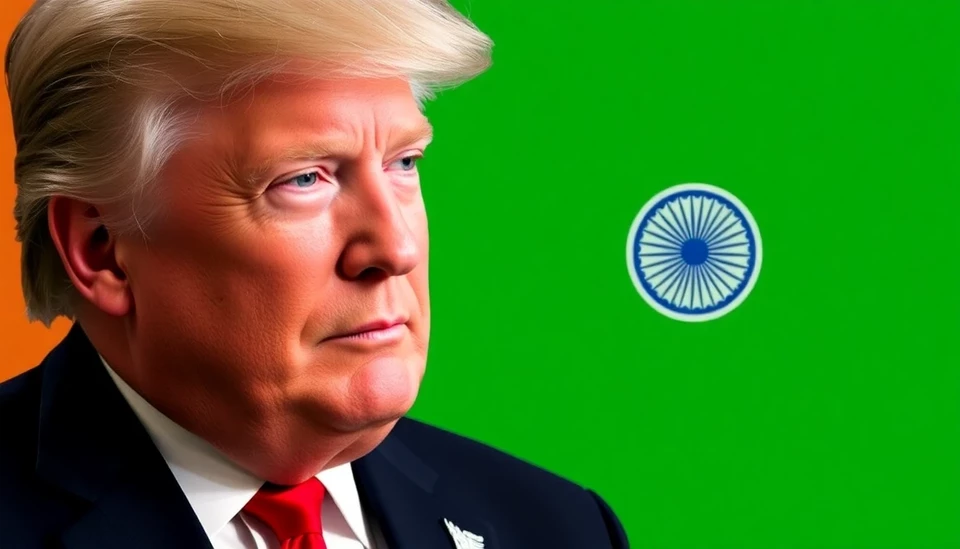
The diplomatic landscape was set for a significant encounter as Ohio's U.S. Senate candidate, J.D. Vance, prepared for a crucial visit to India. His trip occurs amid heightened tensions stemming from former President Donald Trump's contentious trade policies that continue to reverberate internationally, shaping the contours of U.S.-India relations.
Vance's journey to India is not simply another political visit but rather an exploration of potential partnerships and economic ties that have been marred by the ongoing trade war initiated during the Trump administration. As he navigates meetings with influential leaders in India, the overhang of tariffs and trade negotiations remains a critical backdrop.
During his visit, Vance is expected to discuss key issues including technology transfer, defense collaborations, and counterterrorism efforts. These topics are particularly pressing given the geopolitical tensions in the region, especially concerning China's assertiveness. However, the shadow of the previous administration's policies on trade, which saw duties imposed on hundreds of billions of dollars in goods exchanged between the U.S. and other nations, looms large over these discussions.
The former president’s approach, characterized by protectionist rhetoric and a willingness to prioritize domestic industry over international relations, has led to uncertainty and unpredictability—elements that Vance must now contend with as he seeks to build bridges with his Indian counterparts. India's economy, being one of the fastest-growing globally, presents an appealing opportunity for investment and partnership, but the lingering effects of Trump's trade war continue to complicate these interactions.
As Vance seeks to reassess and reframe these relationships, he must also consider the opinions of constituents back home. The consequences of the trade war have been felt in many sectors, prompting significant adjustments for American businesses that relied heavily on international trade. Vance’s handling of this situation during his visit could significantly influence his political future in Ohio, particularly as voters increasingly prioritize international relations and economic stability in their decision-making processes.
In addition to the economic implications, Vance's visit is steeped in the symbolic significance of a bipartisan approach to U.S.-India relations. With the Biden administration also focusing on strengthening ties with New Delhi, Vance's objectives might align, or alternatively, contrast with current policies, thereby drawing attention to the potential for political maneuvering and ideological clashes. His impressions and observations during this trip could even draw discussions back to the effectiveness of U.S. foreign policy under different administrations.
As Vance embarks on this essential diplomatic mission, all eyes will be on him—not only for what he achieves during these meetings but for how he articulates and navigates the complex legacy of Trump's trade policies that continue to shape the global landscape.
Social media and political analysts will undoubtedly dissect each statement and action coming from Vance and the meetings with Indian officials, particularly in the context of fostering a stable and cooperative international trade environment free from the volatility of past administrations. The importance of this visit cannot be overstated; it could symbolize a new chapter in U.S.-India relations, or it could serve as a reminder of the challenges that linger in the wake of divisive trade strategies.
As the agenda unfolds, the implications for American businesses, Indian partnerships, and Ohio's political climate will remain on the forefront of political dialogue, raising the stakes for both Vance’s ambitions and the future of U.S.-India relations as a whole.
#Trump #TradeWar #JDVance #IndiaVisit #USIndiaRelations #Politics #Diplomacy #GlobalTrade
Author: Daniel Foster




